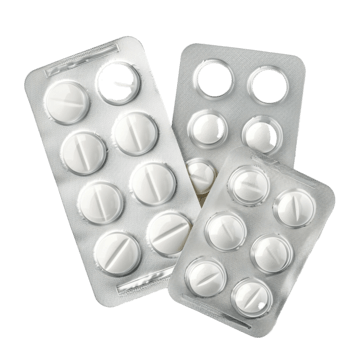Glimepiride

Glimepiride 1mg, 2mg, 3mg, 4mg
Glimepiride is an oral antidiabetic medication used to control blood sugar levels in individuals with type 2 diabetes. It works by stimulating the pancreas to release more insulin and improving the body’s response to insulin. Commonly prescribed alongside diet and exercise, Glimepiride helps lower blood glucose levels and is often used when other medications alone are insufficient for managing diabetes.
Order NowDescription
Glimepiride is an oral antidiabetic medication that belongs to the sulfonylurea class of drugs. It is primarily used to enhance insulin secretion from the pancreas, helping to lower blood sugar levels in individuals with type 2 diabetes mellitus. Glimepiride is often prescribed as part of a comprehensive treatment plan that includes diet and exercise modifications.
Uses / Indications
- Type 2 diabetes mellitus management
- Used in conjunction with diet and exercise
- May be combined with other antidiabetic agents
- Improving glycemic control in adults
Dosage and Administration
Adults:
Initial dose: 1-2 mg once daily, taken with breakfast or the first meal. The dosage may be adjusted based on blood sugar levels, with a maximum recommended dose of 8 mg per day.
Note: Always follow your healthcare provider’s instructions regarding dosage and adjustments.
How It Works (Mechanism of Action)
Glimepiride stimulates the beta cells of the pancreas to release insulin, which lowers blood sugar levels. Additionally, it may improve insulin sensitivity in peripheral tissues, allowing the body to utilize glucose more effectively.
Side Effects
Common side effects:
- Hypoglycemia (low blood sugar)
- Nausea
- Dizziness
- Headache
Rare/serious side effects:
- Severe allergic reactions (rash, itching, swelling)
- Jaundice
- Heart problems (such as chest pain or irregular heartbeat)
Seek medical attention if any serious side effects occur.
Precautions / Warnings
- Inform your doctor if you have liver or kidney disease
- Caution is advised when used with other medications that lower blood sugar
- Regular monitoring of blood sugar levels is essential
Drug Interactions
May interact with:
- Other antidiabetic medications
- Certain antibiotics or antifungals
- Blood thinners (like warfarin)
- Medications that affect liver enzymes
Always inform your healthcare provider about all medications, supplements, and herbal products you are currently taking.
Storage Instructions
- Store at room temperature (20°C–25°C / 68°F–77°F)
- Keep away from moisture, heat, and direct light
- Do not freeze the tablets
- Keep out of reach of children
Missed Dose / Overdose
Missed a dose?
Take it as soon as you remember. If it’s almost time for your next dose, skip the missed one. Do not double up.
Overdose symptoms:
- Severe hypoglycemia (confusion, sweating, tremors)
- Nausea and vomiting
- Dizziness or fainting
Contact a poison control center or seek emergency medical help immediately if an overdose is suspected.
Contraindications
- Allergy to Glimepiride or other sulfonylureas
- Diabetic ketoacidosis
- Type 1 diabetes mellitus
Brand Names / Alternatives
- Amaryl
- Generic name: Glimepiride

